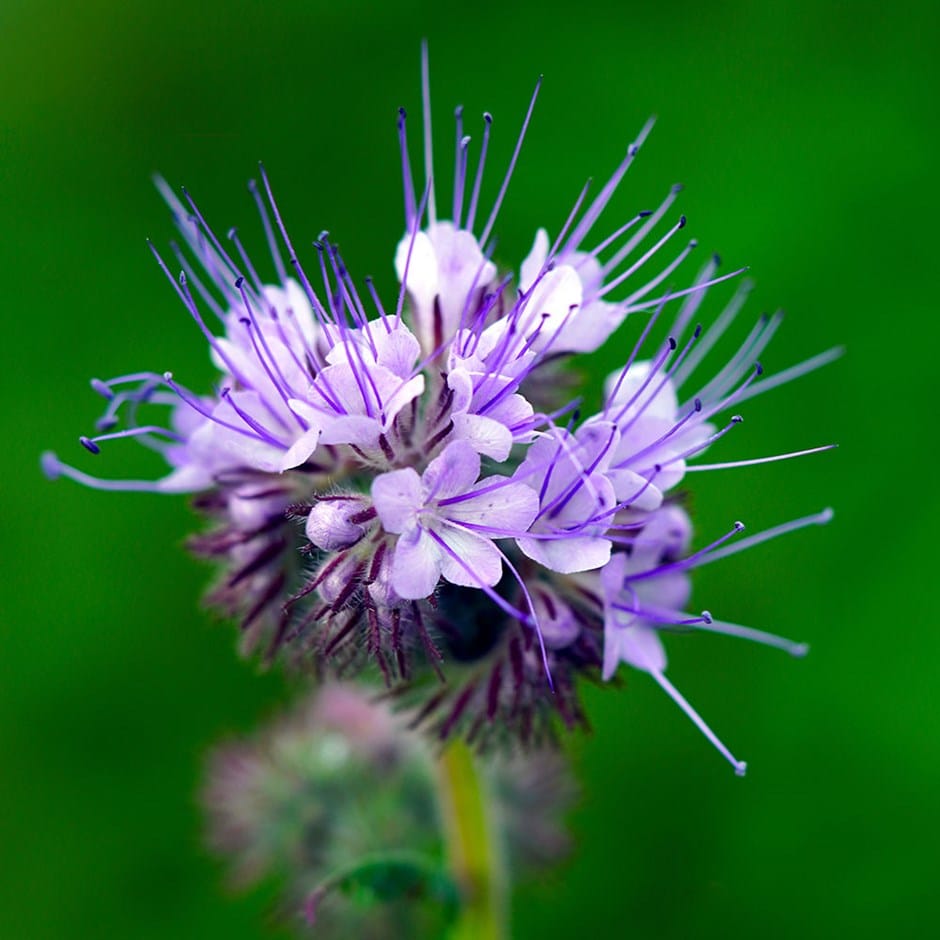Phacelia tanacetifolia - green manure
fiddleneck - green manure
- Position: full sun or light shade
- Soil: any, fertile, well-drained soil
- Rate of growth: average to fast
- Flowering period: June to September
- Hardiness: hardy annual
Lavender-blue, bell-shaped flowers, which are laden with nectar, form in densely-packed clusters on sturdy stems and attract bees and other beneficial insects in their droves. Perfect for wildflower meadows, or naturalised planting schemes, the flowers of this hardy annual will last well after being cut. The fast growing foliage will help suppress weeds and makes an attractive groundcover. Scorpion weed is offered here as a green manure crop, and self-seeds freely. Ideal before heavy-feeding crops such as brassicas or squash.
Green manures are fast-growing plants sown to cover bare soil in productive areas such as allotments, or vegetable gardens, and when dug into the ground while still green, they return valuable nutrients to the soil and improve soil structure. They are especially useful in crop rotation and provide a natural, organic method of improving soil nutrition and structure for follow-on crops. Green manures are usually sown in late summer or autumn and store nutrients, preventing them from being removed by winter rains and cooler weather weeds. An excellent alternative to mulching, heavy-handling of bulky organic manures, and cost-effective.
Green manures are fast-growing plants sown to cover bare soil in productive areas such as allotments, or vegetable gardens, and when dug into the ground while still green, they return valuable nutrients to the soil and improve soil structure. They are especially useful in crop rotation and provide a natural, organic method of improving soil nutrition and structure for follow-on crops. Green manures are usually sown in late summer or autumn and store nutrients, preventing them from being removed by winter rains and cooler weather weeds. An excellent alternative to mulching, heavy-handling of bulky organic manures, and cost-effective.
For use as a green manure, cut down before flowering when the stems are nice and soft to more easily incorporate into the soil. Turn over or cultivate into the top 15cms (6in) and leave to break down for a minimum period of three weeks prior to sowing or planting of the main crop. Alternatively, leave on the surface as a green mulch where worms will recycle the organic matter and help to aerate the soil.
- Sow: March to May or September to October
- Humans: Skin allergen

